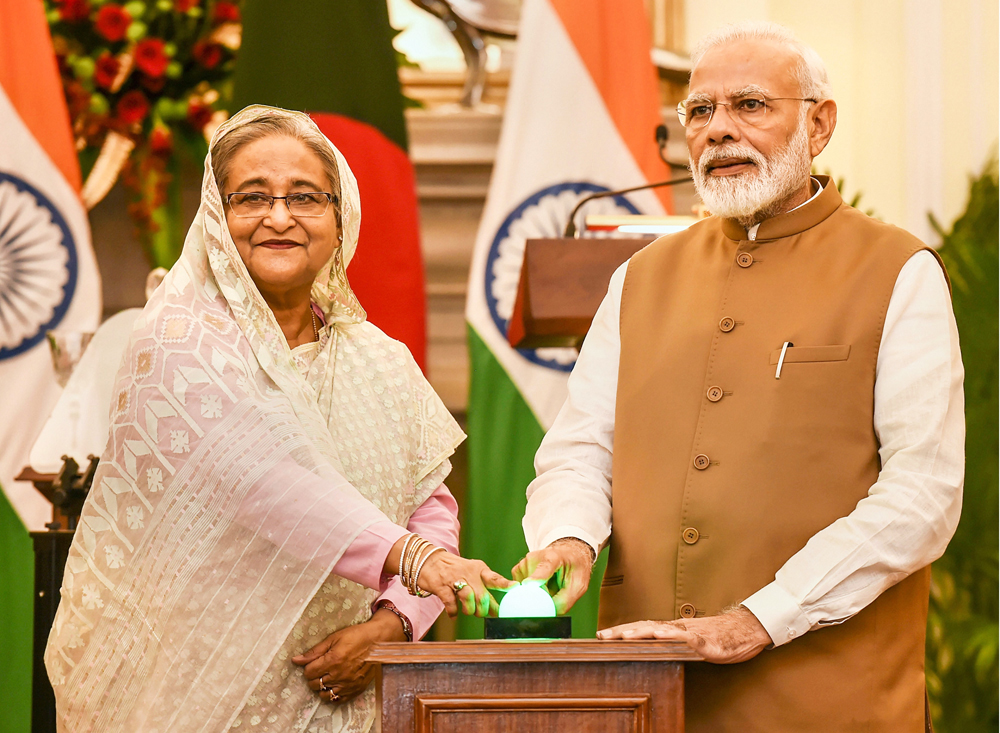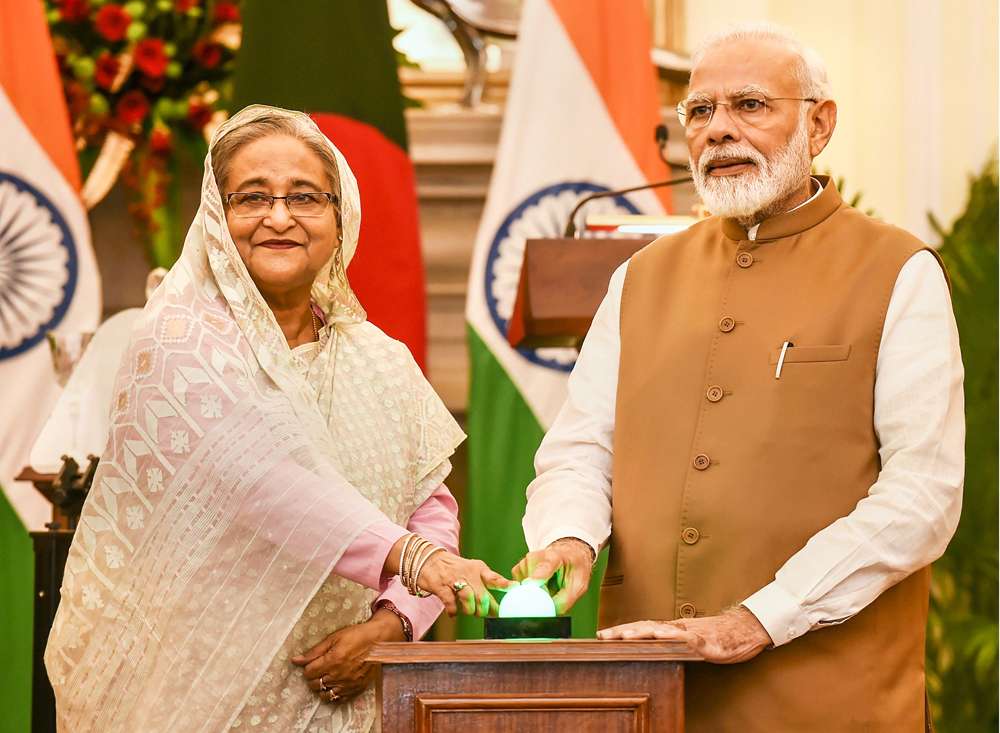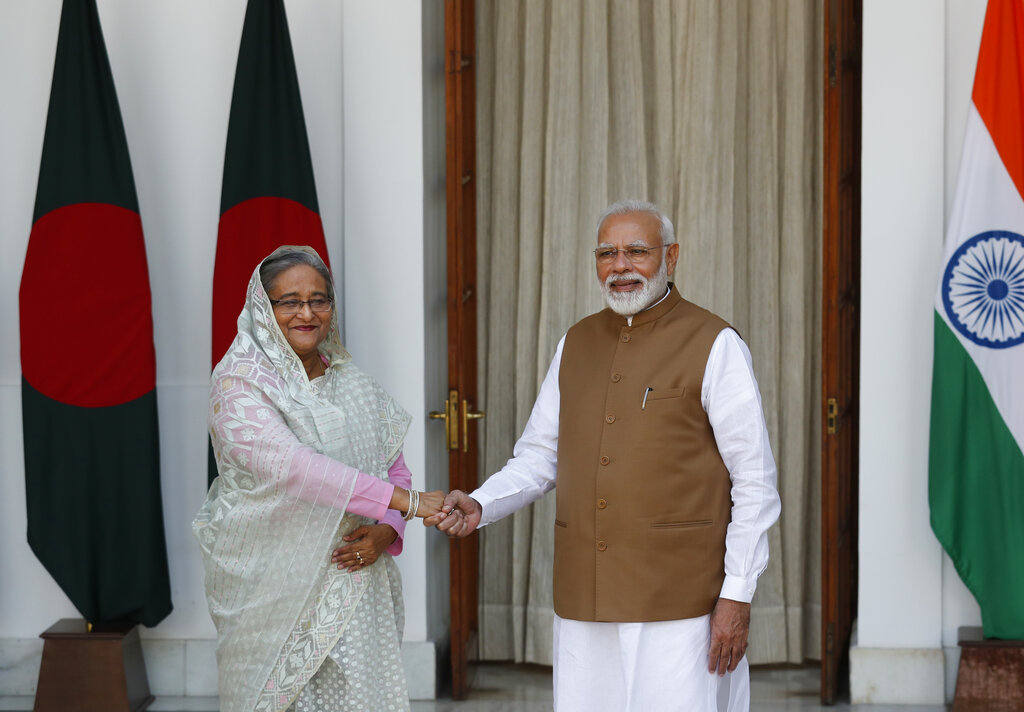Over the past month, Prime Minister Narendra Modi has emphasized his ‘Neighbourhood First’ policy in his meetings and public events with the presidents of Sri Lanka and the Maldives. Separately, the home minister, Amit Shah, told the Opposition in Parliament that he was willing to respond to all of their concerns over the citizenship (amendment) bill.
In reality though, the rush with which the government has pushed the controversial bill, which guarantees non-Muslim religious minorities from Pakistan, Afghanistan and Bangladesh an expedited path towards Indian citizenship, belies claims that neighbourhood relations or the Opposition’s worries really matter to Modi and Shah. Instead, the government appears to be operating out of a playbook that on the international stage — in South Asia and beyond — is destined to lose India friends and influence.
The bill, passed by both houses of Parliament, has sparked protests across India on two grounds. To many, it imposes a religious test on naturalized citizenship, and discriminates against Muslims in a targeted manner. While Hindus, Christians, Sikhs, Parsis, Jains and Buddhists who moved to India from Pakistan, Afghanistan and Bangladesh before December 2014 can gain faster access to citizenship, Muslim communities such as Shias, Ahmadiyyas, Hazaras and Rohingyas who have also suffered from brutal religious persecution in the region cannot. Others, such as protesters in Assam and other parts of the Northeast, believe the new law could encourage future migrants to flood into their territory, swamping their resources.
But look beyond India’s borders, and disenchantment is brewing fast there too, on three different counts. Most impacted among India’s neighbours is Bangladesh. New Delhi’s relationship with Dhaka over the past decade has indisputably been its greatest neighbourhood foreign policy success. Together, the two countries have cracked down on terrorist groups that threatened them both. They’ve dramatically improved connectivity between the countries, have stood by each other in exposing Pakistan’s track record on terrorism, and partnered on strategic port and railway projects. Yet the CAB effectively accuses Bangladesh of systematically victimizing religious minorities. Between them, Bangladesh’s prime minister, Sheikh Hasina Wajed, and her father, Sheikh Mujibur Rahman, ruled for 14 of the 43 years of Bangladesh’s independence until 2014. So it’s natural that Dhaka sees the new law as direct criticism of their secular credentials.
“Do not club us with Pakistan and Afghanistan who are known for fundamentalism and terrorism,” Hasina’s media adviser, Iqbal Sobhan Chowdhury, told reporters after the bill was passed by Parliament. “Sheikh Hasina, our prime minister, has always said that our soil will not be allowed to be used against India.”
At a time when India faces uncertain relations with several other neighbours — Nepal and Sri Lanka are also dancing with China, Afghanistan’s future hinges on America’s withdrawal plans, and ties with Pakistan remain tense — unease with Bangladesh doesn’t bode well. The ambassador of Afghanistan — where India enjoys a largely favourable reputation — in New Delhi has also questioned the suggestion that Kabul discriminates against minorities.
Yet it’s not the only foreign policy fire India will need to douse. For years now, successive Indian governments have wooed Japan to invest in its northeastern states, both to improve the region’s connectivity with Southeast Asia and to send a message to bordering China. After initial reluctance, Japan under its prime minister, Shinzo Abe, has warmed to that idea. For the first time, the annual India-Japan summit between their prime ministers was to be held in Guwahati in mid-December. But the spiralling protests there made Japan rethink. The summit was postponed. Ultimately, no investor likes political instability. If the Northeast returns to the violence and tension of the 1980s and the 1990s, Japan is unlikely to want to put good money into the region.
Across the Pacific Ocean, the United States of America under Donald Trump might seem like a natural ally for the Modi government’s move. After all, Trump had imposed a de facto entry restriction based on religion at the start of his term, barring visitors from a set of Muslim-majority countries. Yet that would be a flawed assumption. Love him or hate him, Trump is a cold negotiator, and the Modi government’s vulnerability on the CAB will not be lost on him. That’ll allow him to push for greater concessions, whether on trade or defence, at the cost of India’s national interests.
Worse, the new law would make it hard for even those Democrats who have stayed quiet on India’s Kashmir clampdown to stay neutral. Democratic presidential candidates such as Joe Biden and Elizabeth Warren were careful not to criticize the Modi government over its decision to scrap Article 370, arrest mainstream political leaders and impose restrictions on communications and movement. But given their strident opposition to Trump’s travel bans, it will not be easy for them to justify Modi’s religion-based citizenship test. Memories of the Nuremberg Laws that turned Jews into second-class citizens in Nazi Germany remain alive for many in the US and beyond. “Religious pluralism is central to the foundations of both India and the United States and is one of our core shared values,” the US house foreign affairs committee has said about the new law. “Any religious test for citizenship undermines this most basic democratic tenet.”
It’s also undermining some of India’s most critical international relationships.













